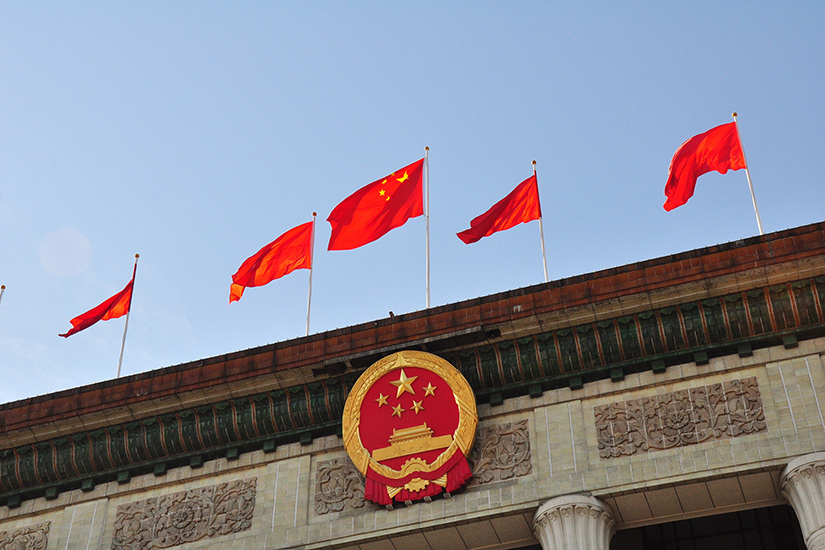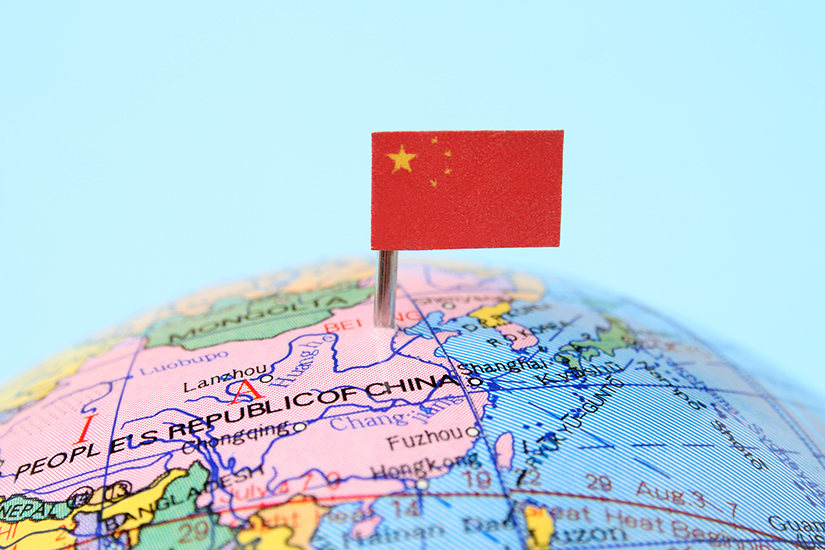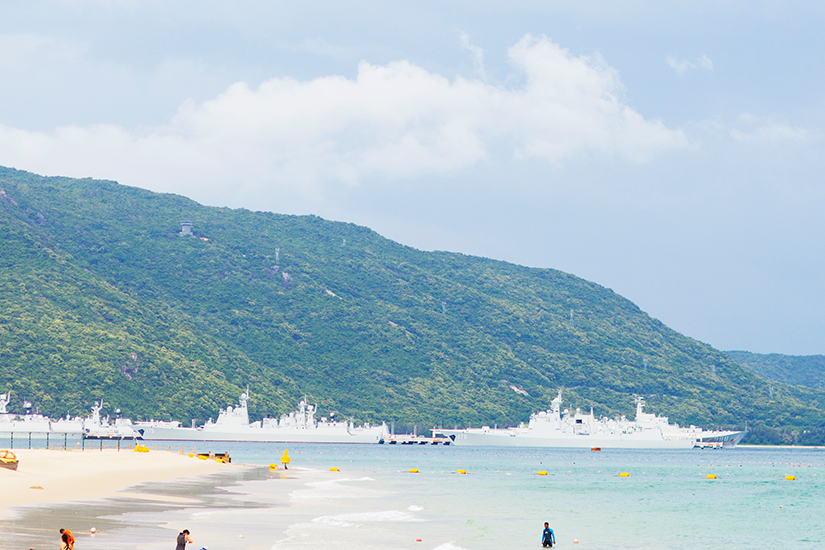Introduction
On May 12, 2025, China published a white paper titled China’s National Security in the New Era.[1] President Xi Jinping has shown a strong interest in national security since his administration was first inaugurated, and to date the establishment of the National Security Commission of the Chinese Communist Party was decided in the meeting of the Chinese Communist Party Politburo in January 2014, [2] the “holistic view of national security” was proposed by Xi Jinping in the first meeting of the National Security Commission in May the same year [3] and was enacted into law as the National Security Law in July 2015, [4] and the National Security Strategy (2021–2025) was deliberated on in the Chinese Communist Party Politburo in November 2021. [5] The new white paper builds on these developments and explains to domestic and foreign audiences about China’s national security philosophy, achievements and initiatives going forward. [6]
Therefore, in this paper, we provide an overview of China’s and in particular the Xi Jinping administration’s view of national security and then delve deeper into how China views Japan from the perspective of national security which emerges from the new white paper.

China’s view of national security
In China, where the “holistic view of national security” was proposed by Xi Jinping in 2014 and was enacted into law as the National Security Law in 2015, a wide range of domains are included in national security. As of 2014, the 11 items of political, territorial, military, economic, cultural, social, science and technology, information, ecological, resource and nuclear security had been cited, [7] but subsequently finance, the Internet, food, overseas interests, outer space, deep sea, polar, biological security, artificial intelligence, digital, etc. were added, [8] and in the new white paper these were collectively stipulated as being “holistic” “great security.”
Furthermore, the National Security Law defines “national security” as “a status in which the regime, sovereignty, unity, territorial integrity, welfare of the people, sustainable economic and social development, and other major interests of the state are relatively not faced with any danger and not threatened internally or externally and the capability to maintain a sustained security status” (National Security Law, Article 2), and it places the highest priority on the guaranteeing the “regime,” namely the “governance system of the Chinese Communist Party,” in addition to what we would think of as general “national security,” such as state sovereignty, territory and unity, the welfare of the people and social development, etc. The new white paper warns that “if the ruling status of the Chinese Communist Party and the socialist system with Chinese characteristics are not guaranteed, the great rejuvenation of the Chinese nation will be impossible and China will be torn apart,” [9] and the “leadership of the Chinese Communist Party” is repeatedly emphasized throughout the paper.
Based on this view of security, the new white paper makes the case that the national security risks China is facing include global and regional traditional and non-traditional security risks shared with other countries, as well as risks specific to China, such as increasing pressure from Western anti-China forces trying to surround, suppress, and contain China and to “Westernize” and “divide” China through a variety of means such as infiltration and sabotage, etc. Specifically, it mentions that some countries are interfering in China’s internal affairs by stirring up trouble in the Taiwan Strait, South China Sea, East China Sea, etc. or frequently causing problems in Xinjiang Uygur, Tibet, Hong Kong, etc. [10]
Japan seen from the perspective of national security
In this white paper, countries and regions that are important or of concern to China in terms of national security are listed in order. [11] However, it is extremely interesting that the word “Japan” does not appear even once in the text of the white paper.
First on the list for building a secure world is Russia, and the white paper emphasizes that the comprehensive strategic partnership between China and Russia will be strengthened further and that it is a strong relationship which is not influenced by external factors such as third countries. Next, it mentions the United States, calling on the United States to strictly abide by the “one China principle” and the three U.S.-China joint statements, [12] and emphasizes that the Taiwan issue, democracy and human rights campaigns, China’s social system, and challenges to China’s development and interests are red lines which China cannot overlook. Thirdly, it brings up Europe as an important partner, and it strongly supports Europe being strategically independent.
The countries neighboring China appear fourth, [13] where Pakistan and Indonesia are brought up and the outcomes of the “community with a shared future for mankind” initiative with those 17 countries are mentioned. After stating China’s opposition to attempts to divide the region under the pretext of the Indo-Pacific Strategy and to an Asian version of NATO, the white paper then goes on to mention the Global South, the Middle East, and Africa. It succinctly states that other pressing initiatives include contributions to the issues in Ukraine, Palestine, the Korean Peninsula, northern Myanmar, and Afghanistan, and briefly touches upon cooperation with Australia, Cambodia, Vietnam, Thailand, Myanmar, and Laos to combat drugs and gambling fraud.
Although the names of those countries which are a security concern are listed one by one in the new white paper, the word “Japan” does not appear even once from its beginning to its conclusion, a total of approximately 22,000 characters.

The seeds of misunderstanding are planted by not clearly stating matters in an up-front way
The Philippines, like Japan, is not mentioned at all in relation to national security, in particular in relation to the most sensitive aspects of relations with neighboring countries such as territory and sea areas. Regarding the Senkaku Islands and the South China Sea, as mentioned above, there is only a statement that “some countries” interfere in China’s internal affairs by “stirring up trouble in the Taiwan Strait, the South China Sea, the East China Sea, etc.,” [14] and regarding the Senkaku Islands, there is only a brief statement that patrols and law enforcement are routinely conducted. [15]
The National Security Strategy (2021–2025), which is said to have been deliberated on in 2021, has not been published, so there is no way of knowing how the strategy positions Japan or stipulates China’s response to Japan. However, if we consider the new white paper to be the Xi Jinping administration’s perception of security connected to the “holistic view of national security,” it is quite difficult to conclude that countries and environments not mentioned in the white paper are considered important in the strategy that is the basis of the white paper.
Chinese society is a society based on writing, just like or even more so than Japanese society, so anything that is not written down is virtually nonexistent. [16] Therefore, we have to conclude that if the strategy is written using a policy line that belittles or trivializes Japan’s existence, as in the new white paper, then there is a risk that the People’s Liberation Army, the China Coast Guard, and Chinese fishermen [17] etc. will also trivialize or belittle the Japan Coast Guard patrol vessels which are acting resolutely to protect Japan’s national interests before their eyes, and their psychology with respect to Japan will become dangerous. It is highly likely that they have not imagined that a misjudgment which occurs because the reality is not viewed objectively and is trivialized could lead to an escalation of tensions between the countries in an instant.
The statements are similar with respect to the Philippines, not only Japan, and we should understand that the attitude of the Chinese authorities and Chinese fishermen toward the Philippine Navy and Coast Guard and Philippines fishermen in the South China Sea is truly proof of that.
In Japan, China’s military activities, including intrusions into territorial waters and airspace, and strategic collaboration with Russia, both of which are intensifying year by year, are being objectively understood and explicitly recognized as a challenge to Japan’s security and the international order, and an attempt is being made to share this perception with the entire nation. As a result, content about China has inevitably come to account for a large proportion of the National Security Strategy of Japan (NSS), the Japan Defense White Paper (“Defense of Japan”), and the Diplomatic Bluebook. This awareness is firmly shared not only by politicians but also by the Self-Defense Force personnel and Japan Coast Guard officers active on the front lines, leading to resolute activities which do not cause careless escalation.
In the new white paper, China clearly expresses its opposition to the Indo-Pacific Strategy and the Asian version of NATO. At the same time, even though it is clear that those are words spoken by former Prime Minister Shinzo Abe and Prime Minister Shigeru Ishiba, the new white paper does not explicitly criticize Japan, nor does it especially bring up the Senkaku Islands as a territorial issue. Some may see this as China being considerate toward Japan, in order to avoid unnecessary friction in Japan-China relations. However, in general, it is more natural to understand the writer’s intentions from what is explicitly stated in this kind of white paper, rather than speculatively making inferences based on what is not written. If this is the case, then the new white paper shows that Japan is an extremely low priority for China when it is considering its national security.
Conclusion
The failure to explicitly explain the current state of tensions which are occurring in reality (not only in the sea and airspace around the Senkaku Islands, but also similarly in the South China Sea and at the Sino-Indian border) to domestic and foreign audiences seems to suggest an intention to trivialize, belittle, or ignore these tensions as a nation. There is a risk that this ignoring and belittling by the Chinese leadership could lead to belittling of the sensitive situations that the People’s Liberation Army, China Coast Guard, and fishermen, etc. themselves face as they engage in operations on the front lines of conflicts of national interests. Examples of this include the recklessness of the Chinese Navy fighter pilot who collided with a U.S. Navy patrol plane in the skies above the coast of Hainan Island in 2001 and the drunk captain of a Chinese fishing boat who crashed into Japan Coast Guard patrol vessels off the coast of the Senkaku Islands in 2010, among other incidents.
It is necessary for SDF personnel and Japan Coast Guard officers active on the ground to fully understand that there is a possibility that China may be acting based on this kind of perspective.

(2025/07/22)
Notes
- 1 China’s National Security in the New Era, The State Council of the People’s Republic of China, May 12, 2025.
- 2 “Communiqué of the Third Plenary Session of the 18th Central Committee of the Communist Party of China,” www.cpcnews.cn, November 12, 2013. The National Security Commission of the Chinese Communist Party is a subordinate organ of the Central Committee of the Chinese Communist Party, equivalent to the national security councils in Japan and the United States, and is different from the State Council’s Ministry of State Security, which is an administrative organ responsible for carrying out intelligence operations, etc. Currently, Xi Jinping is serving as its chairman and Premier Li Qiang, Chairman of the Standing Committee of the National People’s Congress Zhao Leji, and Secretary of the Secretariat of the Chinese Communist Party Cai Qi are serving as the three vice chairmen.
- 3 “Xi Jinping: Adhering to a holistic view of national security and pursuing the path of national security with Chinese characteristics,” www.cpcnews.cn, April 16, 2014.
- 4 “National Security Law of the People’s Republic of China,” National People’s Congress, July 1, 2015.
- 5 “Xi Jinping presided over the deliberations on the National Security Strategy (2021–2025), the Regulation on the Armed Forces’ Honor System, and the National Science and Technology Advisory Commission 2021 Advisory Report in meetings of the Chinese Communist Party Politburo,” The State Council of the People’s Republic of China, November 18, 2021. The National Security Strategy deliberated on here has not been made public.
- 6 “The person in charge in the relevant department answers a question from a reporter about the white paper titled China’s National Security in the New Era,” www.xinhuanet.com, May 12, 2025.
- 7 “Xi Jinping: Adhering to a holistic view of national security and pursuing the path of national security with Chinese characteristics”
- 8 “Resolution of the Central Committee of the Communist Party of China on the Major Achievements and Historical Experience of the Party over the Past Century,” The State Council of the People’s Republic of China, November 16, 2021.
- 9 China’s National Security in the New Era, Chapter 2, Paragraph 3 titled “Giving top priority to maintaining political security”
- 10 China’s National Security in the New Era, Chapter 1, Paragraph 3 titled “China maintains strong resilience while solving risks”
- 11 China’s National Security in the New Era, Chapter 5, Paragraph 2 titled “Promoting the Global Security Initiative to enhance common security”
- 12 The three U.S.-China joint statements: the Shanghai Communiqué (1972), the Joint Communiqué on the Establishment of Diplomatic Relations (1978), and a second Shanghai Communiqué (1982).
- 13 Ministry of Foreign Affairs of China, “Outlook on China’s Foreign Policy on Its Neighborhood In the New Era,” October 2023.
- 14 In China’s National Security in the New Era, Chapter 1, Paragraph 3 titled “China maintains strong resilience while solving risks”, it is stated that “some countries are stirring up trouble in the Taiwan Strait, South China Sea, and East China Sea.”
- 15 In China’s National Security in the New Era, Chapter 3, Paragraph 4 titled “Maintaining territorial integrity and maritime interests”, it is stated that “Law enforcement patrols are routinely conducted in the waters off Uotsuri Island.”
- 16 We can say that the situation inside China with respect to the Tiananmen Square Incident 36 years ago is a typical example of this. “The Tiananmen Square Incident 36 years later: There are young people who are unaware of it due to the government's thorough control of speech,” NHK, June 4, 2025.
- 17 Chinese fishermen are a major component of the maritime militia.

